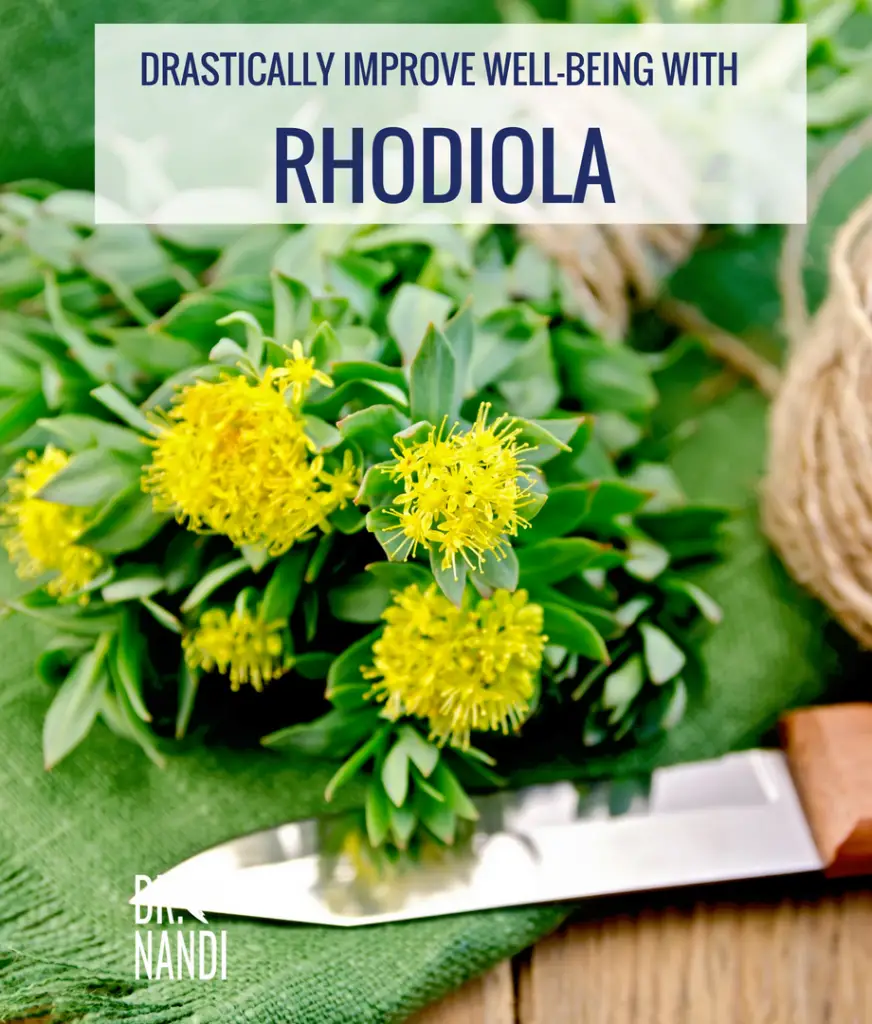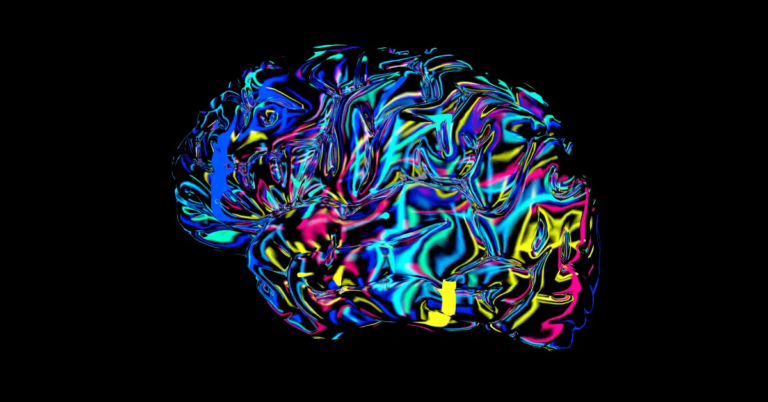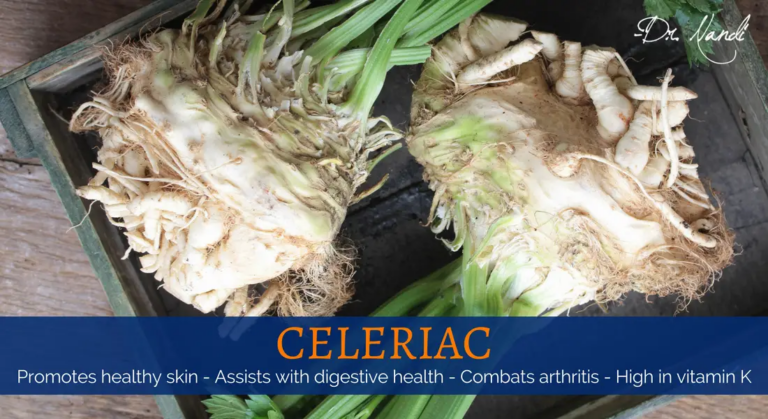Did you know that there is an herb that can help you burn body fat, increase your athletic performance, improve your brain function, better your mental health, and lower your cortisol levels?
This herb is known as Rhodiola Rosea, and it can drastically improve your well-being if you include it in your diet.
What Is Rhodiola Rosea?
Rhodiola, also known as golden root, is a powerful superfood and medicinal herb.
An adaptogen herb can help your body adapt to stress, including physical, chemical, and environmental stress that you are exposed to regularly.
Like many other potent herbs and superfoods, Rhodiola comes from far away, grown in the high altitudes of Asia and Eastern Europe, and has been used by Vikings and sherpas climbing Mt. Everest. It has been used in Chinese medicine to reduce fatigue and improve work performance, insomnia, athletic performance, and fatigue in Russia.
So what makes Rhodiola so famous in the superfood world?
Health Benefits of Rhodiola
Rhodiola is a powerful superfood with many benefits for your physical and mental health. Here are the significant health benefits of Rhodiola backed by science include. Let’s take a look at each of them one by one.
Rhodiola Can Burn Belly Fat
Helping your body to burn stored fat as fuel is one of the magical characteristics of Rhodiola that I bet you are stoked for.
Rhodiola contains something called Rosavin, an active compound that can help stimulate lipase, an essential enzyme in your body that has the powerful ability to burn fat, especially fat stored in the fatty tissue in your belly area.
Yup, Rhodiola can help you get rid of unwanted extra fat on your tummy.
It is not a myth either. Human clinical studies found that Rhodiola combined with moderate exercise can help break down belly fat even more effectively than exercise or Rhodiola alone. Rhodiola can help burn off the fat, while exercise can help you get more lean and toned.
Rhodiola Can Increase Your Energy And Athletic And Mental Performance
Taking Rhodiola can also boost your endurance and stamina by increasing your red blood cells that carry oxygen to your muscles, helping to delay and reduce fatigue and enhance performance.
Researchers have found that Rhodiola can increase the endurance of rats by 25% when swimming. But it’s not just rats that gain more endurance from Rhodiola; human studies show that you can. According to a 2004 study, Rhodiola can help improve endurance and fast recovery due to its inflammation-reducing properties. A 2009 study has also found that Rhodiola can decrease fatigue.
Rhodiola doesn’t only help your fitness and athletic performance but can also enhance your physical and mental performance at work and school. Rhodiola can improve work and life-related stress, increase your focus and increase your energy.
Rhodiola May Help Decrease Stress
Rhodiola is an adaptogenic herb that can balance your cortisol levels and help your system escape the constant ‘fight or flight mode’ from simple everyday stress.
Balancing your cortisol levels is essential, as high cortisol can lead to problems, including hormonal imbalance, weakened immunity, thyroid issues, adrenal fatigue, blood glucose levels, weight gain, and decreased memory. Studies suggest that Rhodiola helps your body find more balance in life by improving work and life-related stress, even during those stressful times. Research indicates that Rhodiola can help you improve your cortisol levels and prevent or improve adrenal fatigue.
Rhodiola May Help With Fatigue
Sleep deprivation, stress, and anxiety can all contribute to fatigue. Rhodiola is supposed to help with tiredness owing to its adaptogenic qualities. In one research, 100 persons with chronic fatigue symptoms were given 400 mg of Rhodiola twice daily for eight weeks. They showed substantial gains in:
- stress symptoms
- fatigue
- quality of life
- mood
- concentration
These benefits were seen after only one week of therapy and improved throughout the final week of the study.
Rhodiola Could Help Reduce Symptoms of Depression
It’s a serious but common mental illness affecting our feelings and behavior. When neurotransmitters in the brain become out of balance, it’s thought to trigger depression. Health professionals commonly use antidepressants to cure these chemical imbalances.
It’s possible that Rhodiola Rosea has antidepressant effects and helps to regulate the neurotransmitters in your brain.
Rhodiola May Help Manage Diabetes
Diabetes is an illness in which the body’s ability to produce or respond to insulin becomes limited, resulting in high blood sugar levels. People with diabetes frequently take insulin injections or drugs that improve insulin sensitivity to manage their blood sugar levels.
It is also worth noting that Rhodiola has been shown to assist with diabetes management in animals. In rats, the salidroside component of Rhodiola has been found to help prevent diabetes and diabetic nephropathy (kidney disease).
These experiments were conducted on rats, so the results can’t be generalized to humans. However, they strongly incentivize further Rhodiola research in humans with diabetes. Talk to your dietitian or doctor if you have diabetes and want to take Rhodiola supplements.
Rhodiola May Have Anticancer Properties
Salidroside, a key Rhodiola component, has been studied for its anticancer effects. It has been shown in test-tube and animal studies to hinder the growth of lung, bladder, stomach, and colon cancer cells.
Because of this, researchers have claimed that Rhodiola might help fight several malignancies. However, until human studies become available, whether Rhodiola can cure cancer remains unknown.
Rhodiola Can Help Improve Brain Function
Rhodiola’s essential benefit is improving your mental health, depression symptoms, and brain function. Rhodiola can potentially increase the sensitivity of your brain’s two important neurons, serotonin, and dopamine. Those two hormones are the hormones responsible for a happy mood, pleasure, memory, and focus.
A 2007 study found that Rhodiola reduced the symptoms of depression within six weeks, while research from 2000 suggests that Rhodiola can improve your focus. Functional medicine doctors and holistic practitioners know this and regularly prescribe Rhodiola as an effective and powerful alternative to antidepressants that can enhance your mood and focus and even reduce food cravings and addictions.
Uses of Rhodiola
What Is Rhodiola Rosea Extract?
When considering Rhodiola supplementing, you will likely be using Rhodiola extract; more specifically, most supplements tend to be SHR-5 extract or an equivalent extract, which confers both 3% rosavin and 1% Salidroside. Make sure to buy your supplements from a reputable company with high-quality products.
The team at Organifi has received Dr. Nandi’s Health Hero stamp of approval. They care about you and only use well-trusted, high-quality, organic, and plant-based ingredients. The Organifi Red Juice contains all the Rhodiola your body needs to function at its best.
When Should Rhodiola Rosea Be Taken?
Suppose you are experiencing adrenal fatigue, lots of fatigue in general, under a lot of stress, and have difficulty focusing or dealing with depression. In that case, you may benefit from supplementing with Rhodiola.
When Does Rhodiola Start Working?
How fast it will take to experience the benefits of Rhodiola will depend on your situation, health conditions, genetic make-up, and lifestyle. According to one research study, taking Rhodiola for six weeks has decreased symptoms of depression. According to another study, there were significant improvements in long-term memory after only ten days.
Generally speaking, clinical studies suggest you should experience some benefits within 30 – 40 days. If you still haven’t seen any improvements after 40 days, discontinue using Rhodiola. Rhodiola may not be suitable for your situation. Still, it is also possible that you may also need further changes in your diet and lifestyle or need to supplement with other herbs, vitamins, and minerals as well. Talk to a healthcare professional to get to the bottom of this and see if Rhodiola may be right for you.
How Much Should Rhodiola Be Taken For Weight Loss?
The appropriate dose for you depends on many factors, including your age, health, and several other conditions. As low as 50 mg can be effective. Consult your integrative or naturopathic doctor regarding the dosage. Most importantly, listen to your body and do what it tells you. Start at a lower dose and go from there. Remember, weight loss doesn’t happen overnight, be patient.
Frequently Asked Questions
How much Rhodiola should I take?
There is no rule of thumb when it comes to Rhodiola. It depends on your situation and body. Start low and go from there; listen to your body and consult a naturopath or other health professional. As low as 50 mg is shown to be effective against fatigue. The acute usage for stress and fatigue is 288 – 680 mg, but don’t stay at such a high amount for too long.
Is there a safe amount of Rhodiola?
More is not always better. Going over 680 mg is not recommended and is shown to be ineffective.
Can I take Rhodiola when pregnant or breastfeeding?
There is currently not enough research evidence and reliable information on the safety of Rhodiola when pregnant or breastfeeding. Talk to your doctor, stay safe, and avoid using Rhodiola if you are pregnant or breastfeeding.
What are the side effects of Rhodiola?
A. If you are taking Rhodiola, you likely don’t have to worry about side effects as they are mild and rare. Some side effects may include activation, agitation, insomnia, anxiety, occasional headaches, allergies, irritability, increased blood pressure, and chest pain.
References:
- Rhodiola rosea in Subjects with Prolonged or Chronic Fatigue Symptoms: Results of an Open-Label Clinical Trial – PubMed (nih.gov)
- The Effects of Rhodiola rosea L. Extract on Anxiety, Stress, Cognition and Other Mood Symptoms – PubMed (nih.gov)
- Stress management and the role of Rhodiola rosea: a review – PubMed (nih.gov)
- Rhodiola rosea versus sertraline for major depressive disorder: A randomized placebo-controlled trial – ScienceDirect
- Exercise, Nutrition and the Brain – PMC (nih.gov)
- Rhodiola rosea L. Improves Learning and Memory Function: Preclinical Evidence and Possible Mechanisms – PMC (nih.gov)
- Salidroside, a Bioactive Compound of Rhodiola Rosea, Ameliorates Memory and Emotional Behavior in Adult Mice – PubMed (nih.gov)
- Rosenroot (Rhodiola): Potential Applications in Aging-related Diseases – PMC (nih.gov)
- Salidroside from Rhodiola rosea L. attenuates diabetic nephropathy in STZ induced diabetic rats via anti-oxidative stress, anti-inflammation, and inhibiting TGF-β1/Smad pathway – ScienceDirect
- Salidroside induces apoptosis and autophagy in human colorectal cancer cells through inhibition of PI3K/Akt/mTOR pathway – PubMed (nih.gov)
- Anti-gastric cancer effect of Salidroside through elevating miR-99a expression – PubMed (nih.gov)
- Salidroside suppresses nonsmall cell lung cancer cells proliferation and migration via microRNA-103-3p/Mzb1 – PubMed (nih.gov)
- Rhodiola rosea L.: an herb with anti-stress, anti-aging, and immunostimulating properties for cancer chemoprevention – PMC (nih.gov)
- Rhodiola rosea in Subjects with Prolonged or Chronic Fatigue Symptoms: Results of an Open-Label Clinical Trial – FullText – Complementary Medicine Research 2017, Vol. 24, No. 1 – Karger Publishers
- Acute and chronic effects of Rhaponticum carthamoides and Rhodiola rosea extracts supplementation coupled to resistance exercise on muscle protein synthesis and mechanical power in rats – PMC (nih.gov)
- Effects of Rhodiola rosea supplementation on mental performance, physical capacity, and oxidative stress biomarkers in healthy men – PMC (nih.gov)




















